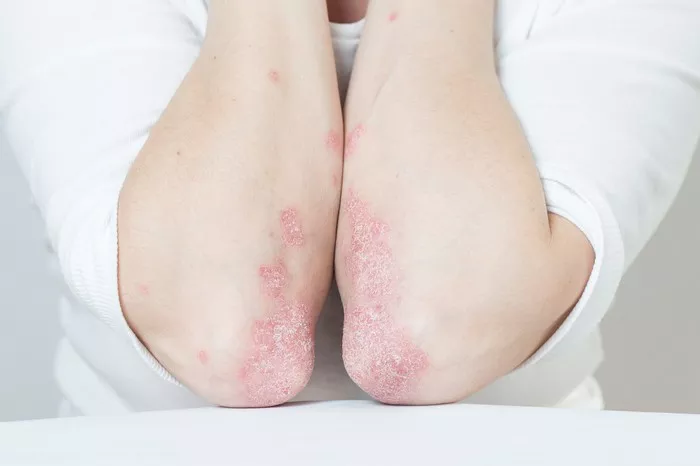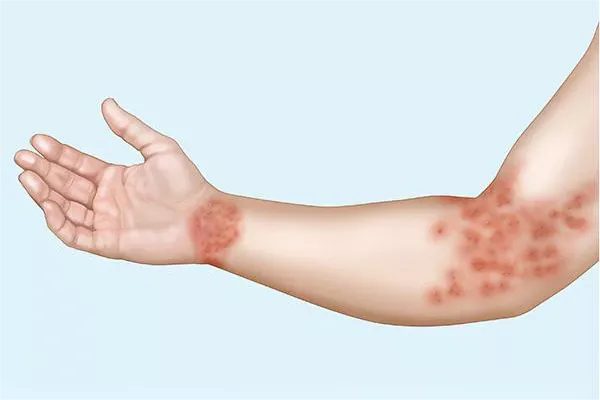Psoriatic arthritis (PsA) is a chronic inflammatory condition that affects many individuals worldwide. It is closely associated with psoriasis, a skin disease characterized by red, scaly patches. One of the common but less discussed symptoms of PsA is hip pain. Understanding the relationship between psoriatic arthritis and hip pain is crucial for proper diagnosis, treatment, and management of the condition. This article delves into the mechanisms by which PsA can cause hip pain, its diagnosis, and the available treatment options to manage this symptom effectively.
Psoriatic Arthritis: An Overview
Psoriatic arthritis is an autoimmune disease, meaning the body’s immune system mistakenly attacks its own tissues. PsA commonly affects the joints and can lead to significant pain and disability if not managed properly. The disease manifests in various forms, ranging from mild to severe, and can affect any joint in the body, including the hips.
Symptoms of Psoriatic Arthritis
Psoriatic arthritis can present a range of symptoms, including:
- Joint pain and stiffness
- Swelling of the fingers and toes
- Fatigue
- Nail changes, such as pitting or separation from the nail bed
- Red, scaly skin patches typical of psoriasis
Causes and Risk Factors
The exact cause of psoriatic arthritis is unknown, but it is believed to result from a combination of genetic, immune, and environmental factors. Individuals with a family history of PsA or psoriasis are at a higher risk of developing the condition. Other risk factors include:
- Age: PsA often develops between the ages of 30 and 50.
- Psoriasis: Having psoriasis is the most significant risk factor.
- Genetic predisposition: Certain genes, such as HLA-B27, have been linked to an increased risk of PsA.
- Environmental triggers: Infections, physical trauma, or stress may trigger the onset of PsA.
The Connection Between Psoriatic Arthritis and Hip Pain
Hip pain in individuals with psoriatic arthritis can be attributed to several factors. Understanding these can help in identifying the right treatment approach.
1. Inflammation and Joint Damage
Inflammation is a hallmark of psoriatic arthritis. Inflammation of the synovial membrane, which lines the joints, can lead to joint pain and swelling. When this inflammation occurs in the hip joint, it can cause significant discomfort and impair mobility.
Over time, chronic inflammation can lead to joint damage and the destruction of cartilage and bone. This degeneration is often seen in advanced cases of PsA and can result in severe hip pain and disability.
2. Enthesitis
Enthesitis is the inflammation of entheses, the points where tendons or ligaments attach to the bone. In psoriatic arthritis, enthesitis is a common occurrence and can significantly contribute to pain and discomfort. When enthesitis affects the hip region, it can cause pain in the groin, thigh, or buttock area.
3. Dactylitis
Dactylitis, also known as “sausage digits,” refers to the diffuse swelling of an entire finger or toe. While primarily affecting the digits, dactylitis can also cause pain and inflammation in larger joints, including the hips, due to the interconnected nature of the musculoskeletal system.
4. Comorbid Conditions
Individuals with psoriatic arthritis often have other comorbid conditions that can exacerbate hip pain. These include:
- Osteoarthritis: The wear and tear of joints can lead to osteoarthritis, which can cause hip pain.
- Ankylosing Spondylitis: This inflammatory disease can cause the vertebrae in the spine to fuse, leading to hip pain and stiffness.
- Fibromyalgia: A condition characterized by widespread musculoskeletal pain that can amplify the perception of hip pain.
SEE ALSO: The 6 Best Topical Steroids for Psoriasis
Diagnosing Hip Pain in Psoriatic Arthritis
Accurately diagnosing the cause of hip pain in individuals with psoriatic arthritis is essential for effective treatment. Diagnosis typically involves a combination of medical history, physical examination, imaging studies, and laboratory tests.
1. Medical History and Physical Examination
A detailed medical history is crucial in diagnosing psoriatic arthritis. Patients should inform their healthcare provider about any history of psoriasis, joint pain, or family history of PsA. During the physical examination, the doctor will assess the joints for signs of swelling, tenderness, and range of motion.
2. Imaging Studies
Imaging studies are vital in evaluating joint damage and inflammation. Common imaging techniques include:
- X-rays: Useful for detecting bone erosion and joint space narrowing.
- Magnetic Resonance Imaging (MRI): Provides detailed images of soft tissues, including the synovium, tendons, and cartilage.
- Ultrasound: Helps visualize inflammation and fluid accumulation in the joints.
3. Laboratory Tests
Laboratory tests can support the diagnosis of psoriatic arthritis and rule out other conditions. Common tests include:
- Erythrocyte Sedimentation Rate (ESR) and C-Reactive Protein (CRP): Elevated levels indicate inflammation.
- Rheumatoid Factor (RF) and Anti-Cyclic Citrullinated Peptide (anti-CCP): These tests help differentiate PsA from rheumatoid arthritis.
- HLA-B27 Testing: Identifies the genetic marker associated with a higher risk of developing PsA.
Managing Hip Pain in Psoriatic Arthritis
Effective management of hip pain in psoriatic arthritis requires a comprehensive approach, including medication, physical therapy, lifestyle modifications, and in some cases, surgical intervention.
1. Medications
Medications play a crucial role in controlling inflammation, relieving pain, and preventing joint damage. Commonly prescribed medications include:
- Nonsteroidal Anti-Inflammatory Drugs (NSAIDs): Reduce pain and inflammation.
- Disease-Modifying Antirheumatic Drugs (DMARDs): Slow disease progression and prevent joint damage.
- Biologic Agents: Target specific components of the immune system to reduce inflammation.
- Corticosteroids: Provide rapid relief from inflammation but are generally used short-term due to side effects.
2. Physical Therapy
Physical therapy is essential for maintaining joint function and mobility. A physical therapist can design a tailored exercise program to strengthen the muscles around the hip, improve flexibility, and reduce pain. Low-impact exercises such as swimming, walking, and yoga are often recommended.
SEE ALSO: The 5 Best Dead Sea Products for Psoriasis
3. Lifestyle Modifications
Adopting a healthy lifestyle can significantly impact the management of psoriatic arthritis and hip pain. Key lifestyle modifications include:
- Weight Management: Maintaining a healthy weight reduces the stress on the hip joints.
- Healthy Diet: A balanced diet rich in anti-inflammatory foods, such as fruits, vegetables, and omega-3 fatty acids, can help manage symptoms.
- Stress Management: Techniques such as mindfulness, meditation, and deep breathing can help reduce stress, which can exacerbate PsA symptoms.
4. Surgical Intervention
In severe cases where conservative treatments fail to provide relief, surgical intervention may be necessary. Common surgical options include:
- Joint Replacement Surgery: Replacing the damaged hip joint with an artificial implant.
- Synovectomy: Removing the inflamed synovial tissue.
- Osteotomy: Realigning the bones to reduce stress on the hip joint.
The Importance of Early Intervention
Early diagnosis and treatment of psoriatic arthritis are crucial in preventing joint damage and managing symptoms effectively. If you experience hip pain along with other symptoms of PsA, such as joint stiffness, swelling, or psoriasis, it is essential to seek medical advice promptly. Early intervention can significantly improve the quality of life and prevent long-term complications.
Regular Monitoring and Follow-Up
Regular monitoring and follow-up with a healthcare provider are essential for managing psoriatic arthritis. Routine check-ups help track the disease’s progression, adjust treatment plans as necessary, and address any new symptoms or concerns promptly.
Patient Education and Support
Educating patients about psoriatic arthritis and its management is vital. Patients should be informed about the importance of medication adherence, lifestyle modifications, and the potential benefits and risks of different treatment options. Support groups and counseling can also provide emotional support and coping strategies for living with a chronic condition.
Conclusion
Psoriatic arthritis is a complex and often debilitating condition that can cause significant hip pain and affect an individual’s quality of life. Understanding the mechanisms behind hip pain in PsA, recognizing the symptoms, and seeking early diagnosis and treatment are crucial steps in managing this condition effectively. With a comprehensive approach that includes medication, physical therapy, lifestyle modifications, and in some cases, surgical intervention, individuals with psoriatic arthritis can achieve better pain management and improved overall well-being. Early intervention, regular monitoring, and patient education are key to living a healthier and more comfortable life despite the challenges posed by psoriatic arthritis.
Related Topics:

























